FWP:
SETS == EK
BEKHUDI: {21,6}
GRANDIOSITY: {5,3}
ABOUT THE 'NICHE': See the illustrations below.
This verse is so lovely, so witty, and so complexly enjoyable!
It belongs to a set that I call 'snide remarks about Paradise'; for more examples, see {35,9}. But the verse is careful to emphasize that the snide remarks apply to that particular Garden of Rizvan which the Ascetic praises-- and thus not necessarily to any other. For perhaps the one he's praising is not the real one. It might be only a petty floral vision framed in his own limited and conventional imagination. The relative clause structure makes this possibility quite real, and of course wonderfully piquant.
By turning the (Ascetic's version of the) immortal Garden of Rizvan into a mere bouquet, the speaker also destroys its immortality and condemns it to start withering almost at once. Moreover, if this is one single [ik] bouquet, the 'self-less ones' probably have others as well, of equal or greater glory. And all of these bouquets, of course, have been tossed aside casually, because those in the self-less state know far more beautiful realities.
Yet apart from this obvious reading of ik , consider all the others in the definition above. The verse might mean not to dismiss the bouquet so casually, but rather to describe it: a 'certain' one, or a 'unique, singular' one, or a 'preeminent, excellent' one (see the definition above). Any of these readings, needless to say, would give a different, and differently thought-provoking, slant to the verse.
On the 'niche of forgetfulness', compare {111,2}; for an idiomatic use, see {214,14x}.
The semantic affinity
between ek and :taaq (see the
definitions above) is also remarkable, and doubly enjoyable since the primary
meaning of :taaq as 'niche' is so apparently unrelated.
ABOUT THE 'NICHE' ( :taaq ): A :taaq is, in North Indian architectural terms, a niche consisting of a small shelf set into the wall, with a simple or elaborate arch over it. These niches can be used for preservation, storage, and/or display of small objects (often lamps, incense, perfume, flowers, vases, or other decorative items), or can appear entirely as architectural adornments. Other :taaq verses: {306x,1}; {347x,2}.
Here's a classic view of some of the elaborate, purely decorative white marble wall-niches in the Musamman Burj, Agra Fort:
And here are many sizes and shapes of niches set into the walls of an old haveli in Sheikhupura, near Lahore; some are very wide and shallow, and are meant mostly to serve as frames for wall-paintings:
In a less lavish home, with plaster walls, there can still be relatively elaborate niches like this one:
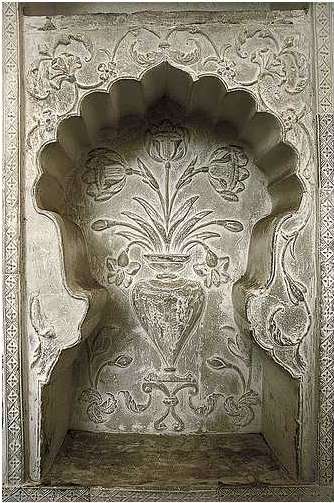
There can also be strictly plain and utilitarian niches-- even on an outer wall, for convenient storage of small items needed on the veranda:
The niche as a decorative motif:
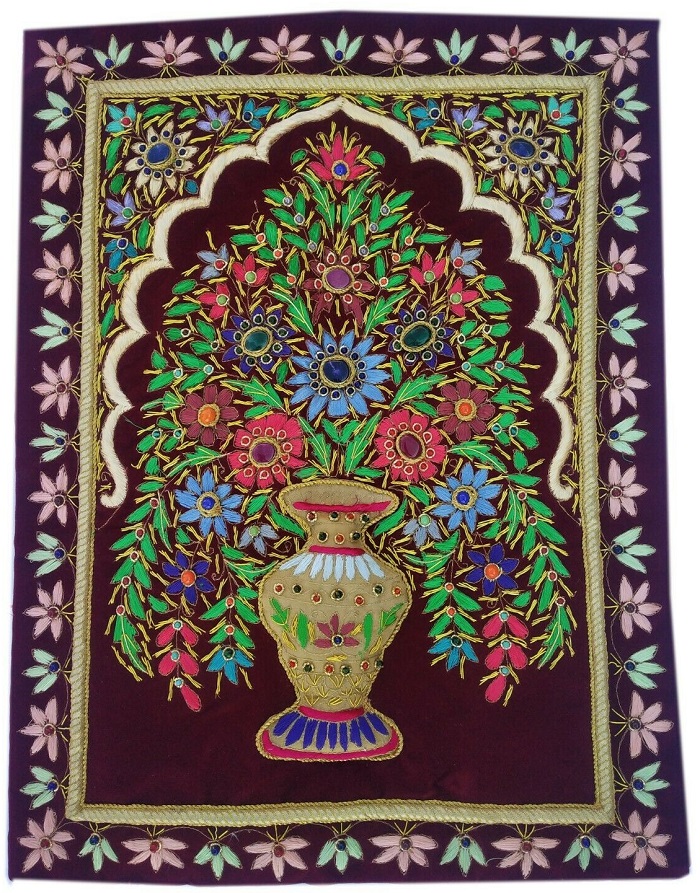
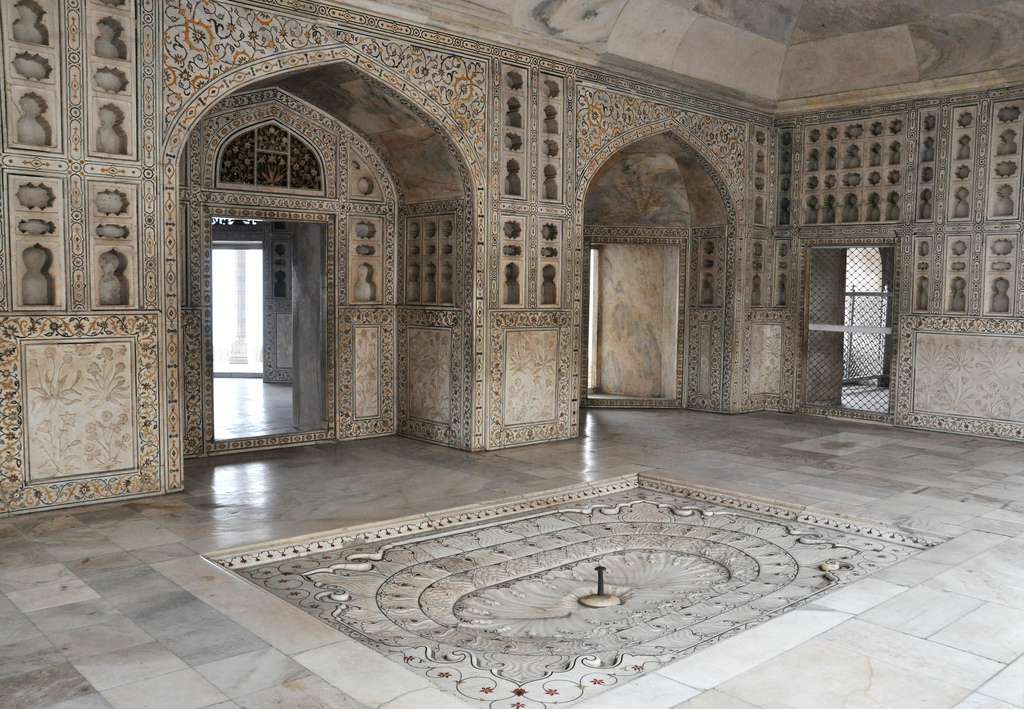
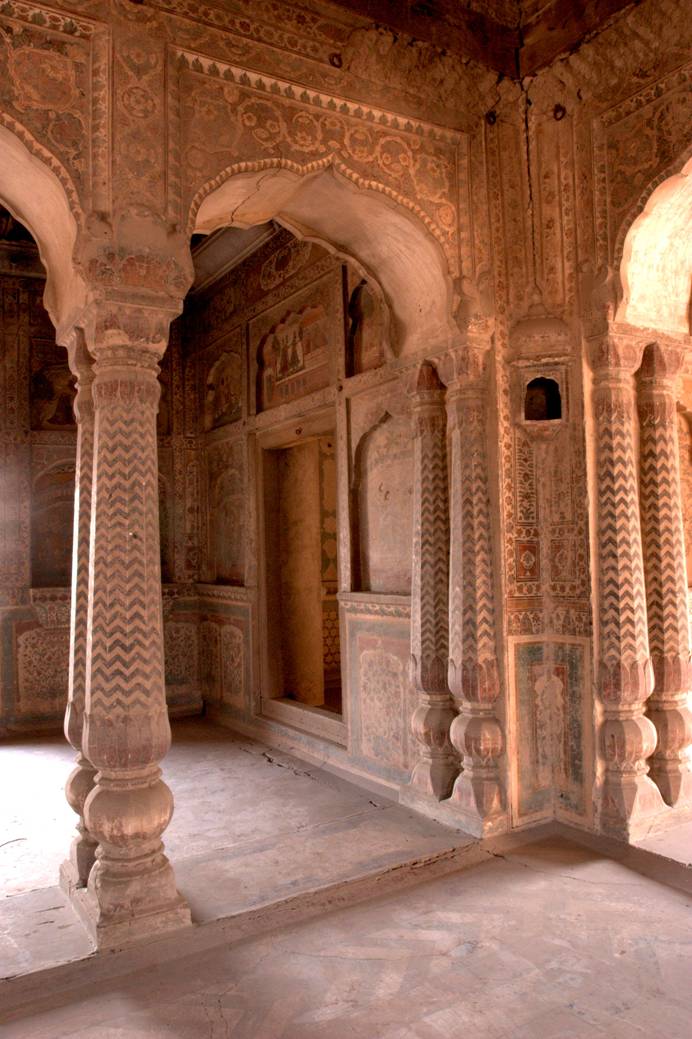
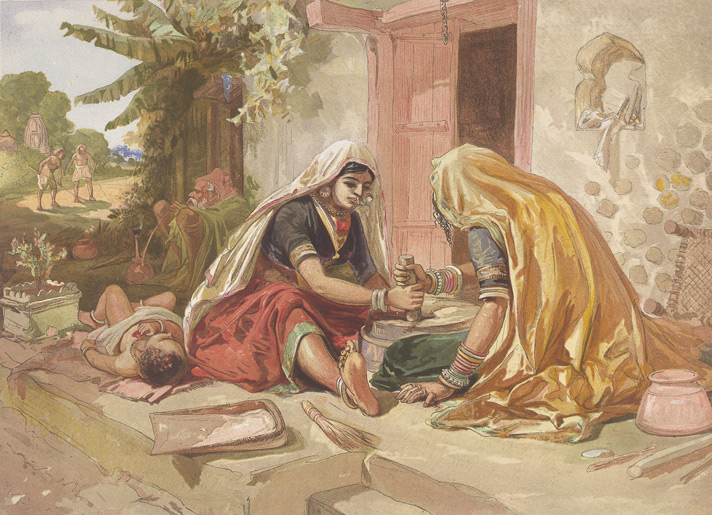
Hali:
To compare heaven to a bouquet in the niche of forgetfulness of the self-less ones is an entirely novel simile which has never been seen anywhere.
==Urdu text: Yadgar-e Ghalib, p. 139